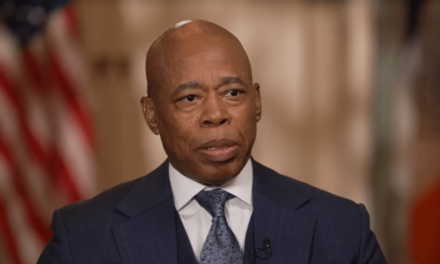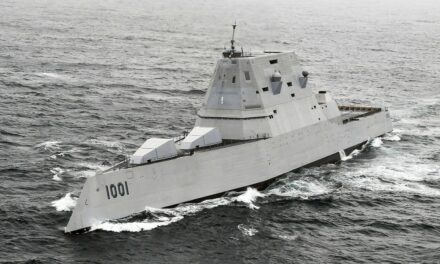We support our Publishers and Content Creators. You can view this story on their website by CLICKING HERE.

Canadian officials have proposed the creation of a joint Canadian-United States police force to address transnational organized crime as part of a broader Border Plan announced by Ottawa.
BREAKING: Canada responds with $1.3 BILLION border security investment after President Trump threatens 25% tariffs. pic.twitter.com/8oL4jv8z4v
— Benny Johnson (@bennyjohnson) December 18, 2024
Celebrate Trump’s Historic 2024 Victory with the Exclusive Trump 47th President Collection!
The proposal, dubbed the “North American Joint Strike Force,” aims to enhance collaboration between the two nations to tackle issues such as illegal border crossings, the fentanyl trade, and organized crime networks.
The details of the proposal were shared during a phone call on Monday between Canadian Public Safety Minister Dominic LeBlanc, Foreign Affairs Minister Mélanie Joly, and incoming U.S. border czar Tom Homan, according to Politico.
The Canadian Cabinet’s new Border Plan is built on five pillars:
- Detecting and disrupting the fentanyl trade.
- Introducing significant new tools for law enforcement.
- Enhancing operational coordination.
- Increasing information sharing.
- Minimizing unnecessary border volumes.
The joint strike force initiative falls under the “enhancing operational coordination” pillar, emphasizing improved collaboration between Canadian and U.S. authorities.
“Increased information sharing between Canadian and United States (U.S.) officials on each illegal border interception enables officials to target and take stronger action against those who abuse our system,” the press release stated.
It added that the plan would include real-time intelligence sharing, monitoring of illegal migration trends, and coordinated resource deployment to disrupt organized crime groups facilitating illegal crossings.
News:
Yes or no, do you think President Trump‘s 25% tariff promise to Canada was a smart move?
I think it was an absolute genius move!
Dominic LeBlanc, the Minister of Finance and Intergovernmental Affairs in Canada, officially commits $1.3 billion to help secure Canada’s… pic.twitter.com/DANgsLd5y4
— Tom Homan – Border Czar Commentary and News (@TomHoman_) December 18, 2024
Royal Canadian Mounted Police (RCMP) Commissioner Mike Duheme expressed optimism about the proposal. “These investments will help the RCMP keep our borders strong, in full collaboration with our domestic partners across government and with our partners in the U.S.,” Duheme said.
He highlighted new tools for law enforcement and expanded aerial surveillance capabilities as key aspects of the plan.
The RCMP plans to use the investments to enhance operational capacity and anticipates significant improvements in border security outcomes.
Specific details on the new measures will be shared in the coming months.
Minister LeBlanc acknowledged that the proposal was partly influenced by the incoming administration of President-elect Donald Trump. “It’s an important step to show Canadians and our American partners that we share their concern around border security and border integrity. We have taken note of President Trump’s comments,” LeBlanc said.
He noted that further work remains to be done.
Last week, Canadian Prime Minister Justin Trudeau met with Trump at Mar-a-Lago after the president-elect threatened to impose a 25% tariff on Canadian goods unless stronger measures were implemented to prevent migrants from crossing into the United States.
Canadian PM Justin Trudeau meets President-elect Trump at Mar-a-Lago. pic.twitter.com/FnsXNYbLO6
— Benny Johnson (@bennyjohnson) November 30, 2024
The proposal comes amid significant shifts in Canada’s immigration policies.
Canada’s population has grown by 3 million people since the COVID-19 pandemic, driven by the Liberal Party’s liberal immigration policies.
However, this rapid growth has strained housing and economic recovery efforts, fueling public discontent and a drop in the Liberal Party’s popularity.
In response, Trudeau’s government recently announced plans to reduce immigration levels.
Under the new plan from Immigration Minister Marc Miller, permanent resident admissions will be cut from 500,000 in 2025 to 395,000.
Additional reductions are planned through 2027.
Nonpermanent resident numbers will also face limitations for the first time, lowering expected admissions by hundreds of thousands.
Trudeau has even echoed rhetoric often associated with Trump, stating that corporations were “hiring immigrants while refusing to hire Canadians for a fair wage.”
The joint strike force proposal reflects Canada’s efforts to address both domestic concerns and bilateral pressures from the U.S. as border security and immigration issues remain high-priority topics for both nations.
The opinions expressed by contributors and/or content partners are their own and do not necessarily reflect the views of LifeZette. Contact us for guidelines on submitting your own commentary.

 Conservative
Conservative  Search
Search Trending
Trending Current News
Current News 





